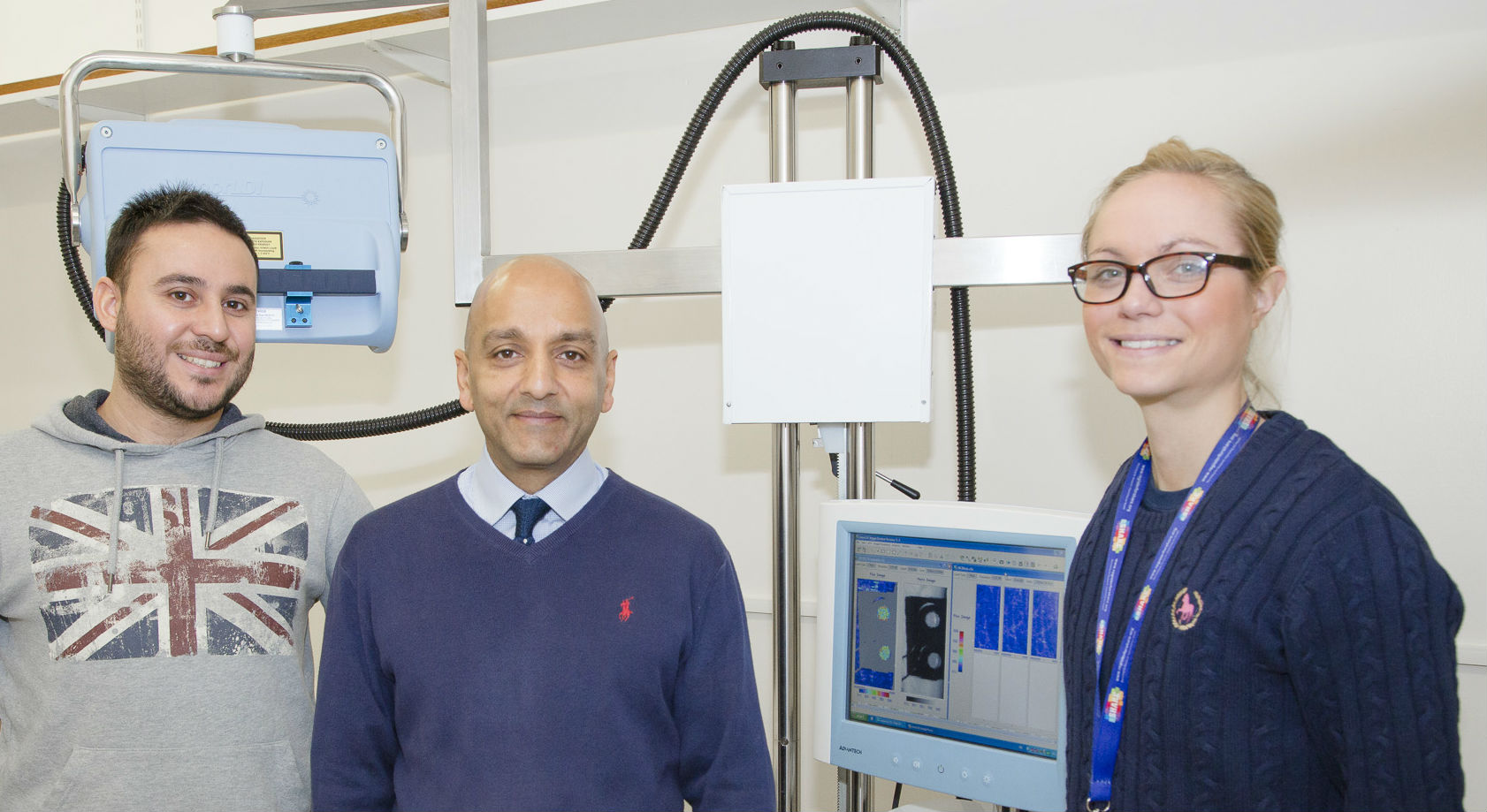Dundee team to research potential cardiovascular disease treatment
Published On Wed 4 May 2016 by Roddy Isles

A University of Dundee research team hopes to find a new treatment for cardiovascular disease by identifying and “switching off” harmful enzymes that can cause inflammation in the blood vessels.
The researchers have identified a group of enzymes called SIK’s that reduce the production of chemicals which protect the blood vessels from inflammation.
The team is hoping they can find a way of “switching off” these enzymes so the protective chemicals can do their job.
The two year project is being funded with a £137,206 grant from national charity Heart Research UK and is led by Dr Faisel Khan.
Chronic inflammation plays an important role in the development of cardiovascular disease, particularly atherosclerosis – the build-up of fatty material inside blood vessels. In the presence of risk factors such as obesity, high cholesterol and high blood sugar, the lining of the blood vessels becomes damaged, which leads to the production of inflammatory chemicals.
Some of these chemicals are harmful to the blood vessels and promote atherosclerosis, while others are protective. Understanding the mechanisms that lead to persistent inflammation and cause damage to blood vessels may allow steps to be taken to counteract them.
Dr Khan said the Heart Research UK grant would allow his team to do further research into what could lead to a new treatment for cardiovascular disease. “By understanding how persistent inflammation occurs and finding ways of preventing it, there are real possibilities that this research could lead to new treatments in the future,” he said. “These enzymes play an important role and the key is to isolate those that are harmful and encourage those that are protective.”
Heart Research UK National Director, Barbara Harpham, said, “We fund research that aims to benefit patients as soon as possible. We hope that Dr Khan’s project will give interesting insights into the role of inflammation in the development of cardiovascular disease and how manipulation of these enzymes may represent a new treatment to prevent coronary heart disease and heart attacks.”
In future studies, the research team hopes to extend the findings from laboratory models to patients admitted to hospital with an acute heart attack. They plan to examine whether high levels of SIKs play an important role in cardiovascular disease in these patients.
Notes to editors
Heart Research UK
Heart Research UK is a visionary charity that has been helping hearts near you since 1967. It funds ground-breaking medical research that benefits patients as soon as possible. Over the last 10 years the charity has funded over £10.2 m on medical research in hospitals and universities across the UK as well as £1.7m on innovative community-based lifestyle projects that help people live healthier, happier and longer lives. Unique, for a national charity, we spend money where it is given, helping hearts near you.
You can also follow Heart Research UK on our website: www.heartresearch.org.uk; Twitter: @heartresearchuk or become a fan of our Facebook page: http://www.facebook.com/pages/Heart-Research-UK/10733061906
The University of Dundee:
The University of Dundee is the Scottish University of the Year 2016, as named by the Times & Sunday Times Good University Guide.
Dundee is internationally recognised for the quality of its teaching and research and has a core mission to transform lives locally and globally by:
- promoting the sustainable use of global resources
- shaping the future through innovative design
- improving social, cultural and physical well-being
Dundee is the top ranked University in the UK for biological sciences, according to the 2014 Research Excellence Framework.
More than 17,000 students are enrolled at Dundee, helping make the city Scotland’s most student-friendly. The University is ranked top in Scotland for student experience in the National Student Survey. www.dundee.ac.uk
For media enquiries contact:
Roddy Isles
Head of Corporate Communications
University of Dundee
Nethergate, Dundee, DD1 4HN
Tel: +44 (0)1382 384910
Mobile: 07800 581902
Email: r.isles@dundee.ac.uk